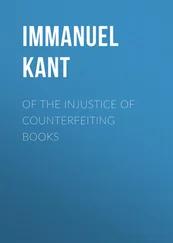Immanuel Kant
The Greatest Works of Immanuel Kant
Complete Critiques, Philosophical Works & Essays (Including Inaugural Dissertation & Biography)
Published by
 Books
Books
Advanced Digital Solutions & High-Quality eBook Formatting
musaicumbooks@okpublishing.info2017 OK Publishing ISBN 978-80-272-3236-9
Introduction: Introduction Table of Contents
IMMANUEL KANT by Robert Adamson
KANT’S INAUGURAL DISSERTATION OF 1770
The Three Critiques:
THE CRITIQUE OF PURE REASON
THE CRITIQUE OF PRACTICAL REASON
THE CRITIQUE OF JUDGEMENT
Critical Works:
PROLEGOMENA TO ANY FUTURE METAPHYSICS
FUNDAMENTAL PRINCIPLES OF THE METAPHYSIC OF MORALS
THE METAPHYSICS OF MORALS
PHILOSOPHY OF LAW; OR, THE SCIENCE OF RIGHT
THE METAPHYSICAL ELEMENTS OF ETHICS
CRITICISM OF THE KANTIAN PHILOSOPHY by Arthur Schopenhauer
Pre-Critical Works and Essays:
DREAMS OF A SPIRIT-SEER
IDEA OF A UNIVERSAL HISTORY ON A COSMOPOLITICAL PLAN
Preface to THE METAPHYSICAL FOUNDATIONS OF NATURAL SCIENCE
PERPETUAL PEACE: A Philosophical Essay
OF THE INJUSTICE OF COUNTERFEITING BOOKS
Table of Contents
IMMANUEL KANT
by Robert Adamson
Table of Contents
KANT, IMMANUEL(1724-1804), German philosopher, was born at Königsberg on the 22nd of April 1724. His grandfather was an emigrant from Scotland, and the name Cant is not uncommon in the north of Scotland, whence the family is said to have come. His father was a saddler in Königsberg, then a stronghold of Pietism, to the strong influence of which Kant was subjected in his early years. In his tenth year he was entered at the Collegium Fredericianum with the definite view of studying theology. His inclination at this time was towards classics, and he was recognized, with his school-fellow, David Ruhnken, as among the most promising classical scholars of the college. His taste for the greater Latin authors, particularly Lucretius, was never lost, and he acquired at school an unusual facility in Latin composition. With Greek authors he does not appear to have been equally familiar. During his university course, which began in 1740, Kant was principally attracted towards mathematics and physics. The lectures on classics do not seem to have satisfied him, and, though he attended courses on theology, and even preached on one or two occasions, he appears finally to have given up the intention of entering the Church. The last years of his university studies were much disturbed by poverty. His father died in 1746, and for nine years he was compelled to earn his own living as a private tutor. Although he disliked the life and was not specially qualified for it — as he used to say regarding the excellent precepts of his Pädagogik , he was never able to apply them — yet he added to his other accomplishments a grace and polish which he displayed ever afterwards to a degree somewhat unusual in a philosopher by profession.
In 1755 Kant became tutor in the family of Count Kayserling. By the kindness of a friend named Richter, he was enabled to resume his university career, and in the autumn of that year he graduated as doctor and qualified as privatdocent. For fifteen years he continued to labour in this position, his fame as writer and lecturer steadily increasing. Though twice he failed to obtain a professorship at Königsberg, he steadily refused appointments elsewhere. The only academic preferment received by him during the lengthy probation was the post of under-librarian (1766). His lectures, at first mainly upon physics, gradually expanded until nearly all descriptions of philosophy were included under them.
In 1770 he obtained the chair of logic and metaphysics at Konigsberg, and delivered as his inaugural address the dissertation De mundi sensibilis et intelligibilis forma et principiis . Eleven years later appeared the Kritik of Pure Reason , the work towards which he had been steadily advancing, and of which all his later writings are developments. In 1783 he published the Prolegomena , intended as an introduction to the Kritik , which had been found to stand in need of some explanatory comment. A second edition of the Kritik , with some modifications, appeared in 1787, after which it remained unaltered.
In spite of its frequent obscurity, its novel terminology, and its declared opposition to prevailing systems, the Kantian philosophy made rapid progress in Germany. In the course of ten or twelve years from the publication of the Kritik of Pure Reason , it was expounded in all the leading universities, and it even penetrated into the schools of the Church of Rome. Such men as J. Schulz in Königsberg, J. G. Kiesewetter in Berlin, Jakob in Halle, Born and A. L. Heydenreich in Leipzig, K. L. Reinhold and E. Schmid in Jena, Buhle in Gottingen, Tennemann in Marburg, and Snell in Giessen, with many others, made it the basis of their philosophical teaching, while theologians like Tieftrunk, Stäudlin, and Ammon eagerly applied it to Christian doctrine and morality. Young men flocked to Königsberg as to a shrine of philosophy. The Prussian Government even undertook the expense of their support. Kant was hailed by some as a second Messiah. He was consulted as an oracle on all questions of casuistry — as, for example, on the lawfulness of inoculation for the small-pox. This universal homage for a long time left Kant unaffected; it was only in his later years that he spoke of his system as the limit of philosophy, and resented all further progress. He still pursued his quiet round of lecturing and authorship, and contributed from time to time papers to the literary journals. Of these, among the most remarkable was his review of Herder's Philosophy of History , which greatly exasperated that author, and led to a violent act of retaliation some years after in his Metakritik of Pure Reason . Schiller at this period in vain sought to engage Kant upon his Horen . He remained true to the Berlin Journal , in which most of his criticisms appeared.
In 1792 Kant, in the full height of his reputation, was involved in a collision with the Government on the question of his religious doctrines. Naturally his philosophy had excited the declared opposition of all adherents of historical Christianity, since its plain tendency was towards a moral rationalism, and it could not be reconciled to the literal doctrines of the Lutheran Church. It would have been much better to permit his exposition of the philosophy of religion to enjoy the same literary rights as his earlier works, since Kant could not be interdicted without first silencing a multitude of theologians who were at least equally separated from positive Christianity. The Government, however, judged otherwise; and after the first part of his book, On Religion within the Limits of Reason alone , had appeared in the Berlin Journal , the publication of the remainder, which treats in a more rationalizing style of the peculiarities of Christianity, was forbidden. Kant, thus shut out from Berlin, availed himself of his local privilege, and, with the sanction of the theological faculty of his own university, published the full work in Königsberg. The Government, probably influenced as much by hatred and fear of the French Revolution, of which Kant was supposed to be a partisan, as by love of orthodoxy, resented the act; and a secret cabinet order was received by him intimating the displeasure of the king, Frederick William II., and exacting a pledge not to lecture or write at all on religious subjects in future. With this mandate Kant, after a struggle, complied, and kept his engagement till 1797, when the death of the king, according to his construction of his promise, set him free. This incident, however, produced a very unfavourable effect on his spirits. He withdrew in 1794 from society; next year he gave up all his classes but one public lecture on logic or metaphysics; and in 1797, before the removal of the interdict on his theological teaching, he ceased altogether his public labours, after an academic course of forty-two years. He previously, in the same year, finished his treatises on the
Читать дальше

 Books
Books










